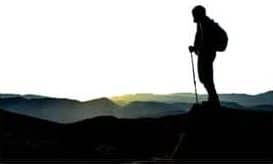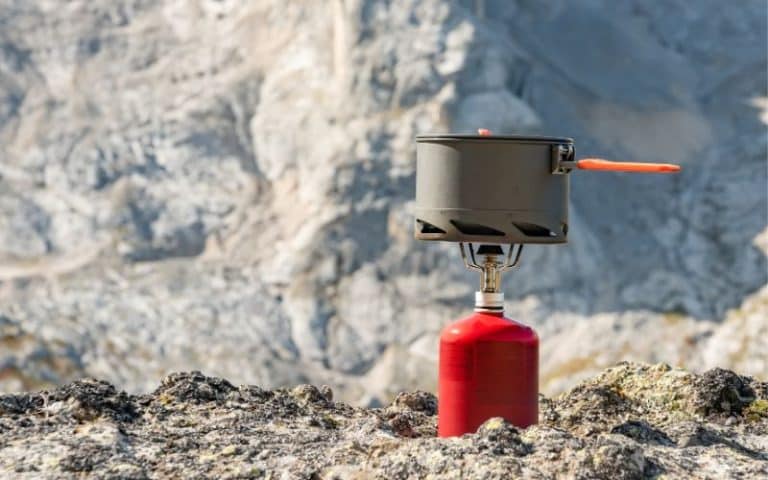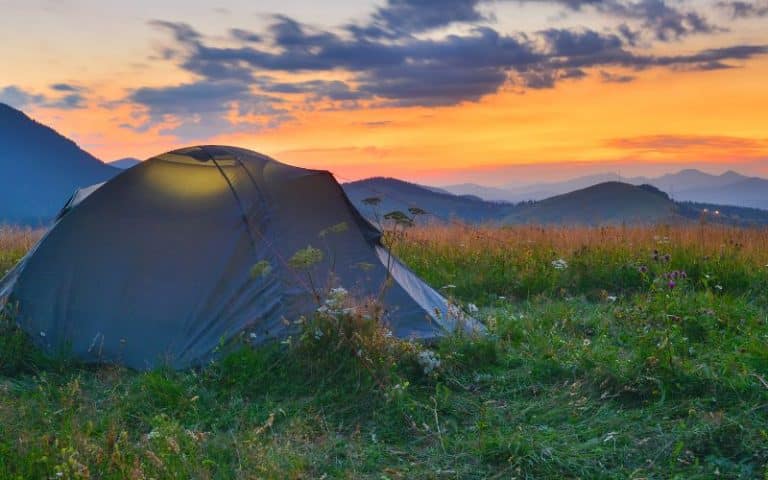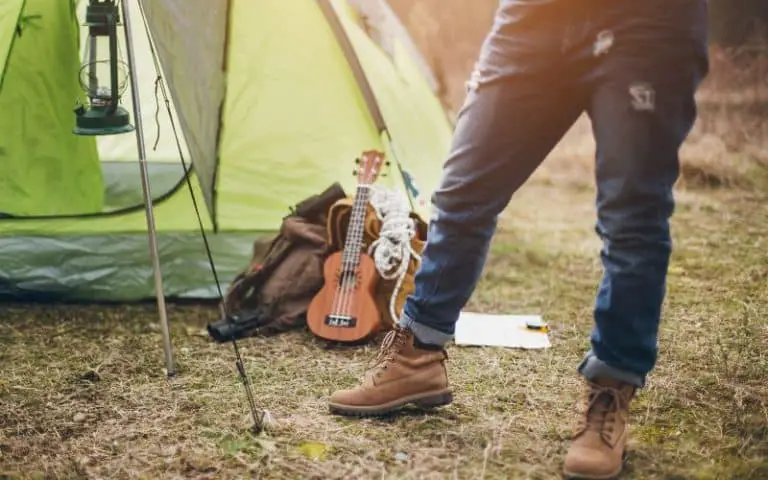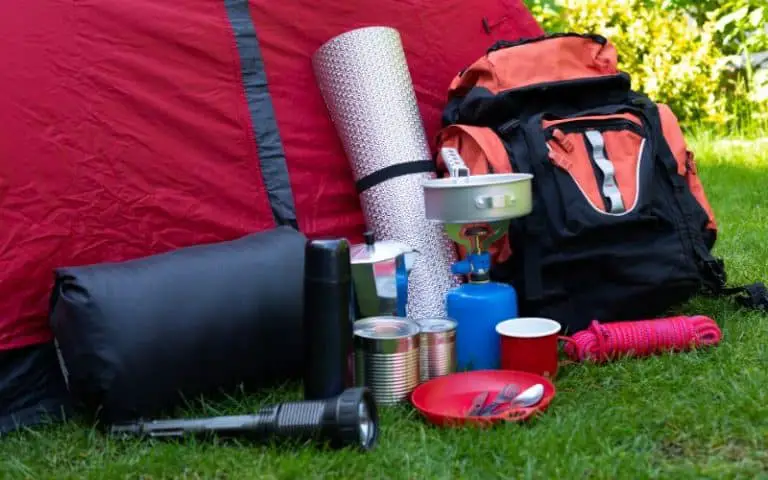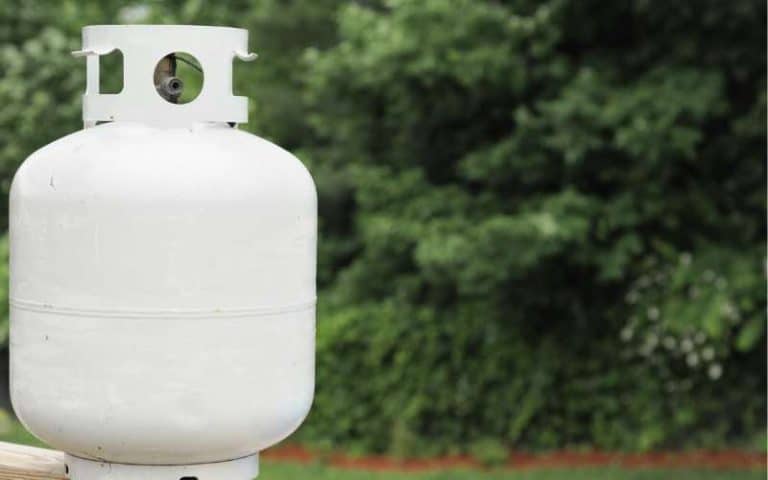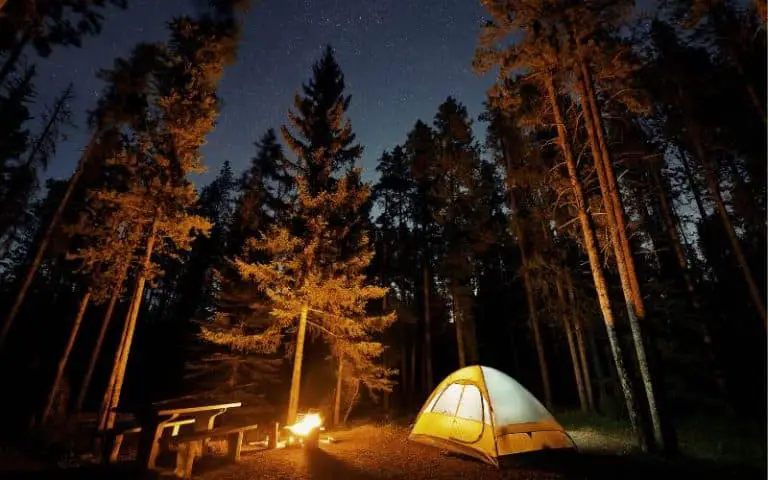Can I Have A Fire Camping? (Explained)
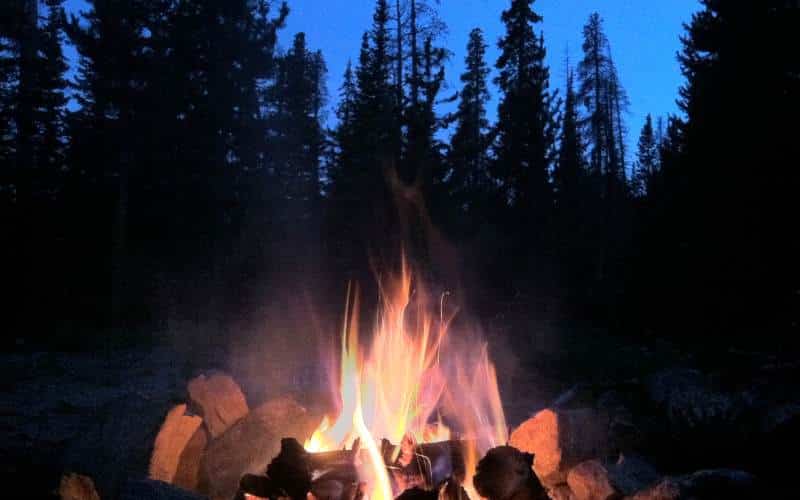
Camping is a great way to reconnect with nature, away from the hustle and bustle of city life, popular outdoor activity is one which many people worldwide enjoy.
Camping can be fun, especially with its iconic aspects like campfires. Nothing beats the thrill of fire camping with its warm and bubbly atmosphere.
However, fire camping poses some risks, too, and it is right to want to know if you can have this experience.
You can have a fire camp if you meet the requirements. These conditions include compliance with your campground’s regulations regarding fires and safety measures to prevent a fire outbreak. Weather conditions can also determine if you can build a campfire or not.
This article will provide valuable information to help you decide if you can have a fire while camping.
Are Campfires Allowed on All Campgrounds?

Campfires are a beloved aspect of camping, but you can’t always have one as not all campgrounds allow them.
The decision to allow campfires on campgrounds depends on several factors. If these conditions don’t favor campfires, campgrounds won’t let them.
Below are some of these factors.
#1. Location
Locations of campgrounds determine if they allow campfires or not. For example, some campsites exist in dry regions or forests with dead wood and foliage.
These situations make them prone to wildfires. Campgrounds in such areas don’t allow campfires to prevent accidental wildfire outbreaks.
#2. Weather Conditions
Campgrounds may prohibit campfires in some weather conditions. Dry and windy seasons, for instance, facilitate the spread of fires, so campsites restrict fires when they come by.
#3. Local Regulations
Some regions or municipalities have regulations regarding campfires. Some places even propose limitations preventing campgrounds from having fires, while others limit fire sizes.
Some of these states prohibit campfires from preventing the occurrence of wildfires. Others do so to avoid damage to local flora and fauna.
Aside from these primary reasons for campgrounds disallowing campfires, they may also do so to avoid taking responsibility for such fires.
Some campgrounds prohibit campfires because they don’t have hosts to ensure that campers follow campfire rules.
The advantages and disadvantages of campfires are also pivotal in campgrounds permitting their use.
The table below contains some of these merits and demerits of campfires.
| Advantages | Disadvantages |
|---|---|
| Campfires are light sources for campers. | Campfires can escalate into wildfires. |
| They provide warmth. | They pollute the environment. |
| Campers cook with them. | They pose health risks and injuries to campers. |
| They are sources of entertainment. | Campfires can damage camping gear. |
| They provide security. |
Campgrounds that do allow campfires have rules regulating their use. These regulations vary, but they all aid in properly using fires in campsites. You’ll see these rules as you read on.
Are Campfires Illegal?
Locations and circumstances determine the legality of campfires. In some cases, the local authorities subject them to regulations and restrictions, a breach of which makes them illegal.
The following constitutes the circumstances under which campfires may be considered illegal:
#1. In National Parks and Forests
Some national parks or forests prohibit campfires from preventing and eliminating threats to surrounding ecosystems. In some cases, they only permit fires within designated areas.
Therefore, campfires are illegal in such areas. Where they allow them within certain areas, it is unlawful to build fires outside those places.
#2. During Fire Bans
The risk of wildfires is high during dry and hot weather conditions or high winds. At times like that, authorities impose fire bans to mitigate the occurrences of wildfires.
These bans may include restrictions on campfires, gas, and charcoal grills. It is illegal to make campfires during these bans.
#3. During Drought or Extreme Heat
Campfires easily escalate and spread quickly during drought or extreme heat. Therefore, authorities may ban open fires, including campfires, during such periods to prevent wildfires.
Compliance with campfire restrictions during drought and extreme heat makes such fires illegal.
#4. In Urban or Residential Areas
Local authorities enforce strict fire rules because of the damage they can cause in these areas.
Hence, campfires may be illegal because of the risk of spreading to nearby homes.
Also, some areas have high fire danger ratings. If you camp in such places, it is best to avoid lighting campfires.
Breaching campfire regulations in residential areas may attract fines. Prosecutions are also possible consequences for defaulters if their fires get out of control.
These regulations prevent wildfires which are dangerous and harmful to human lives, properties, and natural resources.
Therefore, it is necessary to comply with campfire bans to avoid illegal situations. Always check with the local authorities to know which restrictions are in place at a particular time.
Also, take necessary precautions when building and lighting campfires. Doing so will ensure they don’t pose risks to the surrounding environment.
Is Fire Camping Allowed in Regional Victoria?
Generally, fire camping is allowed in Regional Victoria. However, strict regulations guide fires during camping to prevent harm to campers and the environment.
For instance, before lighting campfires, campers should check for restrictions applicable in specific parks.
They should also acquaint themselves with information regarding campfires in Victoria.
Also, campers in state forests should use trenches at least 30 cm deep in building campfires.
Those in national and state parks must only light campfires in designated fireplaces.
Furthermore, adults must always be present to maintain the campfires and should never leave them unattended.
They must extinguish the fires with water when they finish using them. They should also ensure that the ashes are cold before leaving the ground.
Several factors influence the approval of fire camping in Regional Victoria. These considerations consist predominantly of specific locations, seasons, and fire danger ratings.
Additionally, fire camping is not feasible in state forests and national parks on Code Red days.
Also, campfires are not allowed on days of a total fire ban. Hence, you cannot go fire camping on such days.
Common Rules for Fire Camping
Campgrounds usually set rules that campers must abide by for safe fire camping experiences. These rules may differ, but some regulations are common to all campsites.
The common rules for fire camping include the following:
#1. Check With Local Regulations
Campers must check with the local regulations before fire camping. It enlightens them about standing restrictions on fire camping and helps them plan their trip to avoid affected areas.
#2. Campfire Permits
Some grounds require people to get fire permits before fire camping. These authorizations ensure that campers are fit to build campfires without causing harm to themselves and the environment.
#3. Choose a Safe Location
Safety is essential when camping, so choosing a safe location for the fire is necessary. Some campgrounds have designated fire rings or pits where campers must build fires.
If fireplaces are unavailable, the ideal place is an open, flat area away from trees and shrubs.
Also, no flammable material must be within a 10-foot radius of the fire to prevent it from spreading.
#4. Never Leave Fires Unattended
Tiny sparks of fire can quickly escalate into infernos when nobody is watching. Therefore, it is crucial to have someone tend campfires at all times to prevent them from spreading.
#5. Extinguish Fires Properly
Campers should ensure extinguishing campfires properly with water. Ensuring the embers and ashes are cool to touch before leaving the campground is advisable.
Also, campers should pack all trash and leave no trace. They must not burn this dirt in the campfire to prevent toxic smoke and wildfire.
Following these rules will help campers enjoy a safe fire camping experience. It will also prevent wildfires and protect the environment.
- Hiking Trails in Ohio: All You Need To Know - December 16, 2023
- Best Hiking Trails in the World and USA! - October 9, 2023
- Hiking Tips for Beginners: Things You Should Know! - October 9, 2023
